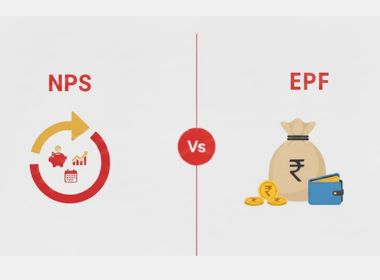Search Suggestions
- Gold Loan
- Money Transfer
- Mutual Funds

How is a Lump Sum Investment Different from SIP?
When it comes to investments, Mutual Funds are the most effective and simplest method to generate wealth over time. However, many investors find themself confused about whether they should invest through SIP or lumpsum.
Table of Content
- What is SIP?
- What is a Lump Sum Investment?
- SIP Vs. Lump Sum Investment: Understanding the Differences
- Factors to Consider Before Investing
- SIP Vs. Lump Sum Investment: Which One to Choose
Both these investment methods have their own advantages and disadvantages, catering to different financial goals, risk appetites, and market conditions. To help you make an informed investment decision, here are the key differences between SIP and lump sum investments:
What is SIP?
SIP, or systematic investment plan, is a type of investment plan that allows you to invest a fixed amount of money in mutual funds at regular intervals. These intervals could be monthly, quarterly, annual, or semi-annual, depending on individual preferences.
One of the key advantages of SIP is that you can start with as little as INR 100, making it a great way to build wealth, especially for young investors who have a long-term horizon.
What is a Lump Sum Investment?
A lump sum investment is a one-time payment plan where you invest a large amount of money all at once. The return on this investment largely depends on the amount invested and how the market is performing. You can opt for lump sum investments for various reasons, such as retirement plans, insurance premiums, etc.
SIP Vs. Lump Sum Investment: Understanding the Differences
Here are some key differences between SIP and lump sum investment:
Parameter | SIP | Lump Sum Investment |
Investment Amount | Fixed amount invested regularly (monthly/quarterly). | A large amount was invested at once. |
Risk | Lower risk as your investments are spread out over several market cycles | Higher risk as the entire amount is exposed to market fluctuations. |
Market Timing | Not dependent on market timing. | Requires careful timing to get maximum returns and avoid risks. |
Cost Averaging | Yes, helps average out the purchase cost over time. | No, the entire investment is made at a single price point. |
Flexibility | Highly flexible, as you can start, pause, or stop anytime. | Less flexible once invested |
Investment Goals | Suitable for long-term investment goals | Suitable for short-term investment goals |
Power of Compounding | Strong compounding effect over time due to regular contributions. | Compounding is limited compared to regular contributions. |
Financial Discipline | Encourages regular saving and budgeting habits. | It allows you to save a substantial amount at once, reducing the risk of overspending. |
Suggested Read: SIP Investment: What’s the Best Time to Start?
Factors to Consider Before Investing
When choosing between SIP and lump-sum investment, here are some factors to consider:
- Investment Amount: If you have large amounts of money at your disposal, then a lump sum investment can be an ideal choice for you. SIP, on the other hand, will be more suitable for those who have less money on hand and are trying to inculcate a savings habit.
- Market Timing: Lump-sum investment yields better returns when the market is low. If you have a good understanding of market cycles, then a lump sum is for you. However, if you find predicting market trends is a challenge, SIP can be a less risky option.
- Type of Fund: Market volatility plays a very important role in returns when it comes to specific fund categories. This is why you must consider the type of fund, such as equity, debt, or hybrid, before investing.
- Risk Tolerance: Before investing, determine your risk tolerance. This will help you choose between lump sum and SIP investments.
SIP Vs. Lump Sum Investment: Which One to Choose
Here are some different scenarios that can help you choose between SIP and lump sum investments:
Choose SIP Investments when:
- You have a regular monthly income, such as a salary
- You don’t have a large sum of money to invest
- You have the patience to invest regularly for a long time
- You have long-term financial goals, like retirement planning
- You want to get better returns than traditional savings accounts or fixed deposits
- You are a beginner investor who prefers a hands-off approach without closely monitoring market conditions
- You want to develop saving habits.
Choose Lump Sum Investments when:
- You have a large sum of money ready to invest
- You are an experienced investor with good knowledge of market fluctuations
- You can tolerate short-term market fluctuations
- You are comfortable with the risk that comes with investing a large amount of money at one time
- You have short-term goals like purchasing a car or going on a vacation
Suggested Read: Best Mutual Funds for SIP Investment in 2025
Ultimately, the choice between lump sum and SIPs depends on various factors, such as your financial goals, risk tolerance, market conditions, and investment horizon. To choose between the two, you should consider your investment goals and consult a financial advisor who will be able to suggest the best investment strategy as per your financial situation.
Ready to start your investment journey? Muthoot Finance offers a wide range of lump sum and SIP plans, helping you find the perfect fit for your financial goals. Visit our website or consult with our financial experts for personalised guidance.
- Insurance
- Group Insurance
- Health Insurance
- Home Insurance
- Vehicle Insurance
- Life Insurance
- Travel Insurance
- Shop Insurance
CATEGORIES
OUR SERVICES
-

Credit Score
-

Gold Loan
-

Personal Loan
-

Cibil Score
-

Vehicle Loan
-

Small Business Loan
-

Money Transfer
-

Insurance
-

Mutual Funds
-

SME Loan
-

Corporate Loan
-

NCD
-

PAN Card
-

NPS
-

Custom Offers
-

Digital & Cashless
-

Milligram Rewards
-

Bank Mapping
-

Housing Finance
-

#Big Business Loan
-

#Gold Loan Mela
-

#Kholiye Khushiyon Ki Tijori
-

#Gold Loan At Home
-

#Sunherisoch
RECENT POSTS

Understanding Gold Bees: How it Works, Net Asset Value, Returns and More
Know More
Multi Cap and Flexi Cap Mutual Funds: How Are They Different?
Know More
Online Personal Loan vs. Offline Personal Loan - Which Is Better for You?
Know More
10 Tips to Improve Chances of Personal Loan Approval
Know More
10 Factors Affecting Mutual Fund Performance Explained Simply
Know More
10 Key Factors That Affect Your Personal Loan EMI
Know More
What Is Fine Gold? Meaning, Purity (999), Uses & Price Explained
Know More
Gold vs Silver: Which is Better as an Investment?
Know More
Why Gold Is a Safe Haven Asset: Meaning, Benefits & Real Examples
Know More
Gold or Bitcoin - Best Investment for Value Retention
Know MoreFIN SHORTS

The Best 7 SIF Funds of 2026: A Better Way to Invest
Know More
Gold Price Hits ₹1,40,000: How It Impacts Gold Loan Amounts
Know More
How to Check Loan Number: Step-by-Step Process
Know More
How to Open an SIP Account: Online and Offline Process
Know More
How Do I Apply for MSME Certification Online in India?
Know More
7 Important Reasons to Choose Hallmark Gold When Buying Jewellery
Know More
What Are Co-Pay and Deductibles in Insurance Policies?
Know More
Should You Take a Loan Against Your Mutual Fund or SIP?
Know More
Top 5 Best Mid-Cap Mutual Funds to Watch in 2026
Know More
Are Personal Loans Right for Retirees? Key Points to Consider
Know More
What Happens to a Personal Loan After the Borrower Dies?
Know More
Best Loan Choices for Credit Scores of 580 and Below
Know More- South +91 99469 01212
- North 1800 313 1212





